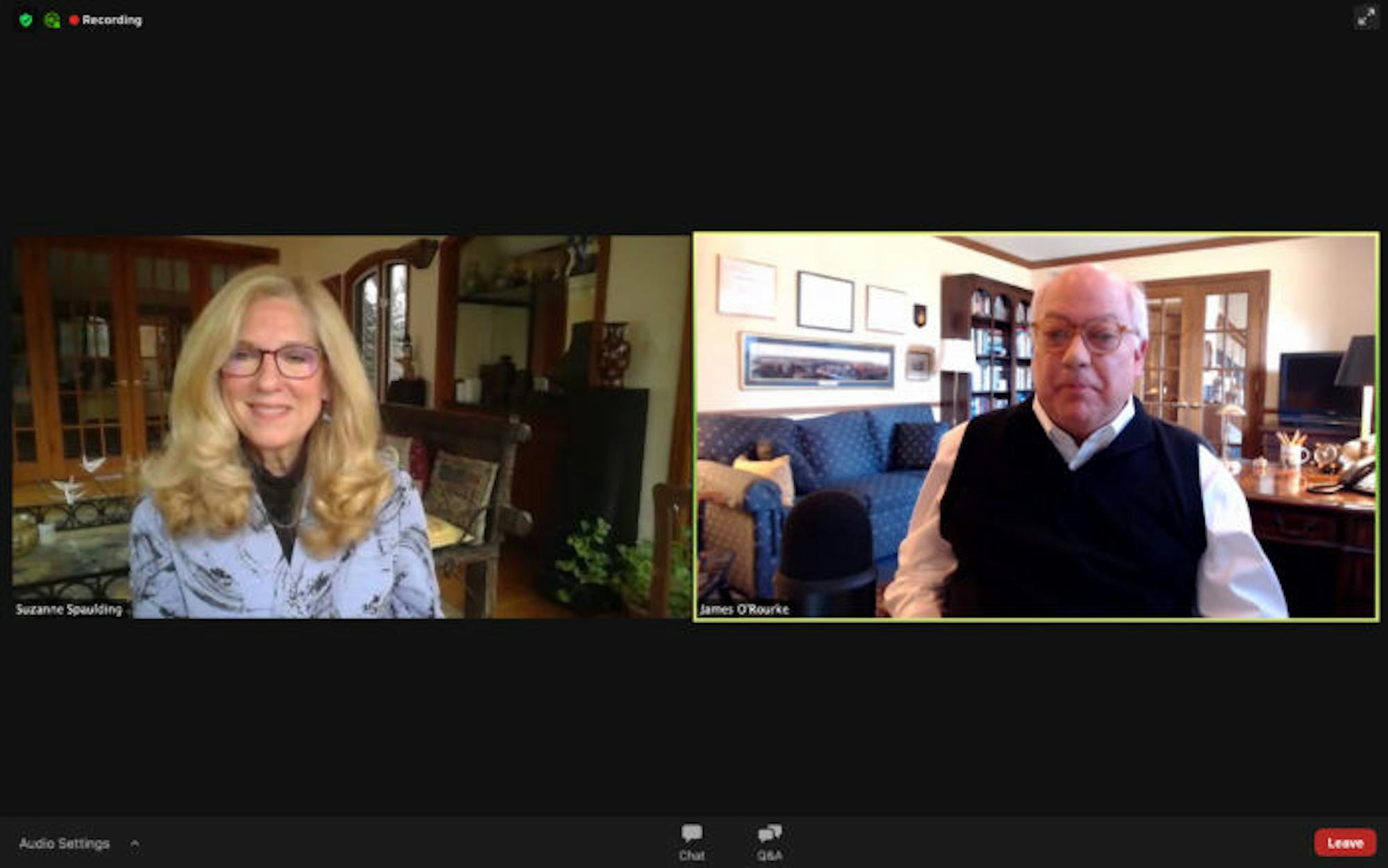Between the 2016 election and the events at the Capitol on Jan. 6, the United States has faced growing concerns over foreign manipulation of elections.
Suzanne Spaulding, a senior advisor in the U.S. Department of Homeland Security, said this involvement is a tool in the “Kremlin playbook,” a ploy to damage a nation’s trust in its democratic institutions.
Spaulding is also the director of the Defending Democratic Institutions project at the Center for Strategic and International Studies in Washington D.C. She spoke about disinformation and democracy as a part of the Ten Years Hence speaker series sponsored by the O'Brien-Smith Leadership Program.
“Russia is not inventing these narratives, they are taking existing division lines of division in our country, existing skepticism about the justice system and amplifying and exploiting it and making it appear to be a system that is irrevocably broken,” Spaulding said.
Despite the increased awareness of these intrusions during elections, Spaulding said this is not a threat isolated to the election cycle.
“It's a 365-day-a-year threat,” Spaulding said.
With hacks, propaganda and specific online campaigns, Spaulding said Russia works under the radar to influence Americans’ confidence in U.S. democracy.
One of these targets is the legitimacy of U.S. elections. The seeds of doubt are planted in the form of fake news posts and targeted social media presences, and Spaulding said these doubts end up manifesting into the display at the Capitol Jan. 6.
Spaulding said there is a social contract to respect the outcomes of elections, despite an inability to enforce them. This trust is often taken for granted, but it has been exploited by foreign powers.
“The Russian national security infrastructure which repeatedly tries to tap into as I say the protest potential of the population,” Spaulding said. “Not to bring about change, but to provoke people to take to the streets in despair, having given up hope, which is when things turn violent, and indeed that's what we saw on Jan. 6.”
To uncover more targets of the Kremlin, Spaulding said she did an exercise in “red teaming,” the intelligence community’s version of devil’s advocate, to get inside Putin’s mind.
“[If] I wanted to undermine democracy through undermining its institutions, where would I go next? What other institution, like the elections, is so dependent upon the public's faith and confidence in the legitimacy of the process?” Spaulding asked.
As a lawyer, Spaulding noticed the same vulnerability in the U.S. court system.
“I quickly realized how fragile... in many ways, that is, and how it could be used to undermine public trust and confidence,” Spaulding said. “You see the hack and leak of sensitive court documents, altering data in court databases, altering decisions, altering court orders about who gets released and who doesn't, who owes what, pays what kind of fine, etc.”
The objective of all this manipulation is simply to stir up discontentment in the U.S. citizenry.
“Putin’s objective is to drive us into a post-truth world in which we have given up,” Spaulding said. “We've been so inundated with false information with things we can't trust that we no longer believe in the concept of truth, that we no longer at least believe in our ability to discern what's true.”
Online, fake Russian accounts flame the fire of both extreme ends of the political spectrum.
“One of the things we've also seen with Russian disinformation, is that they will play on both sides. They don't actually have an ideological dog in this fight, they just want to exacerbate the fight,” Spaulding said.
But how does a society facing attacks of misinformation combat its enemies?
Spaulding said a reinvestment into civics education is the way to remind Americans of the values of democracy and its merits.
“It is worth fighting for. Not because it's perfect, but because it can be changed. That is the beauty of democracy, over authoritarian and totalitarian regimes,” Spaulding said.
In her lecture, Spaulding said only 24% of eighth graders demonstrate a proficiency in civics. Furthermore, only five cents of federal funding are spent on civics per student, compared to $54 for STEM learning.
"Between convincing us that our system is irrevocably broken and cannot be changed, and that we can never be informed, Putin will rob us of the informed and engaged citizenry, upon which democracy so desperately depends,” Spaulding said.
Senior advisor for Homeland Security lectures on disinformation, foreign involvement in elections
Suza
Suzanne Spaulding, senior advisor in the U.S. Department of Homeland Security and director of the Defending Democratic Institutions project, spoke at a webinar Friday.









